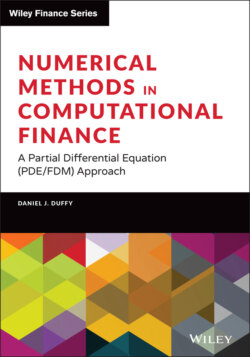Читать книгу Numerical Methods in Computational Finance - Daniel J. Duffy - Страница 58
3.4 EXISTENCE THEOREMS FOR STOCHASTIC DIFFERENTIAL EQUATIONS (SDEs)
ОглавлениеA random process is a family of random variables defined on some probability space and indexed by the parameter t where t belongs to some index set. A random process is a function of two variables:
where T is the index set and S is the sample space. For a fixed value of t, the random process becomes a random variable, while for a fixed sample point x in S the random process is a real-valued function of t called a sample function or a realisation of the process. It is also sometimes called a path.
The index set T is called the parameter set, and the values assumed by are called the states; finally, the set of all possible values is called the state space of the random process.
The index set T can be discrete or continuous; if T is discrete, then the process is called a discrete-parameter or discrete-time process (also known as a random sequence). If T is continuous, then we say that the random process is called continuous-parameter or continuous-time. We can also consider the situation where the state is discrete or continuous. We then say that the random process is called discrete-state (chain) or continuous-state, respectively.
